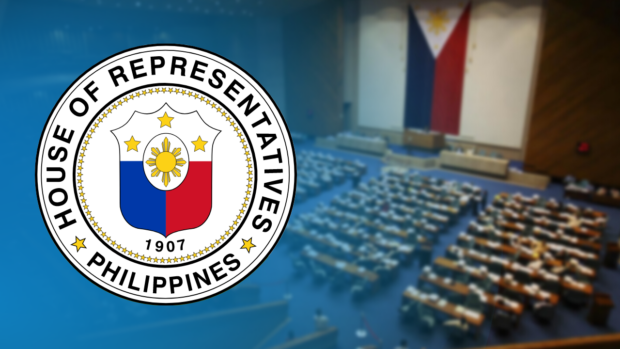
MANILA, Philippines — The House of Representatives is looking to approve on second reading the Resolution of Both Houses (RBH) No. 7, which proposes amendments to the 1987 Constitution’s economic provisions, by Wednesday, according to Majority Leader Manuel Jose Dalipe.
In a briefing on Monday, Dalipe said that the committee report on RBH No. 7 has been forwarded to the committee on rules he heads, allowing him to schedule dates for the deliberation of this measure.
RBH No. 7 was approved at the committee level last March 6, after six hearings conducted by the committee of the whole.
“We have a committee report today, Monday; the committee report of the committee of the whole House will be forwarded to the committee on rules, which I also chair. And the committee on rules, or the chairman of the committee on rules, can now include it in the calendar of business for Monday, Tuesday, and Wednesday. So we will be including it in the calendar of business for second reading,” Dalipe told reporters at the Batasang Pambansa complex.
“So we expect that many lawmakers would ask questions, so we will allot three days for plenary debates on RBH No. 7. Not just a day, not just two days, but three days for debates deliberation on the second reading of RBH No. 7. And hopefully, by Wednesday, we can vote on the matter on second reading,” he added.
Deputy Speaker David Suarez meanwhile believes the committee hearings were exhaustive and gave several answers to lawmakers’ questions on RBH No. 7.
“Well, first, I thank all the resource persons who shared their views during the discussions of the committee of the whole. You saw that there were six or seven extensive days which the committee of the whole used for exhaustive, intensive, and inclusive hearings,” Suarez noted.
“And I think we covered a lot of areas, especially when it comes to education, advertising, economic restrictions, basic principles,” he added.
Last March 6, the House committee of the whole approved RBH No. 7, which seeks to amend three economic provisions of the 1987 Constitution by inserting the phrase “unless otherwise provided by law”:
- Section 11 of Article XII (National Patrimony and Economy), where the phrase “unless otherwise provided by law” is inserted in the provision that bars foreign ownership of a public utility shall except in a case where 60 percent of the total capital belongs to Filipino citizens
- Section 4 of Article XIV (Education, Science and Technology, Arts, Culture, and Sports) where the phrase “unless otherwise provided by law” is inserted in the provision that bars foreign ownership of basic educational institutions except in a case where 60 percent of the total capital belongs to Filipino citizens.
- Section 11 of Article XVI (General Provisions), where the phrase “unless otherwise provided by law” is inserted in two portions: first, the provision that bars foreign ownership in the advertising industry except in a case where 70 percent of the total capital belongs to Filipino citizens; and in the provision that limits foreign investors participation in entities to how much their capital share is
If the proposed amendments are approved by the House and the Senate and are ratified in a plebiscite, it would allow Congress to pass laws that would prescribe the rate of foreign ownership for these industries.
Many sectors have raised concerns and opposition to inserting the phrase “unless otherwise provided by law” in the Constitution’s economic provisions, including the Department of Education, which feared that amendments might lead to foreign influence on basic education.
During a previous hearing, retired chief justice Reynato Puno urged the House to refrain from using the phrase in amending the 1987 Constitution’s economic provisions, saying that the items in question should be repealed instead.
Puno explained that amendments made through legislation — or enacting bills that would specify how much foreign businesses can own in the industries that would be opened — may be questioned for its constitutionality.

